Europe's situation in the face of the second wave of COVID-19
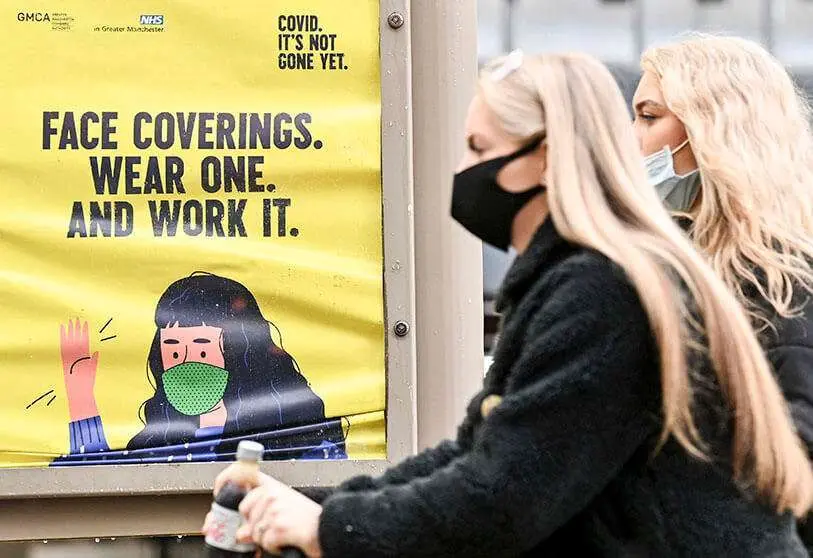
The cafés and bars, which are closed throughout the Brussels region. Mandatory masks abroad in Italy. Curfew in Berlin and Frankfurt. Ban on meetings between non-household members in Liverpool. Lockdown in Madrid.
The second wave of the COVID-19 has arrived in Europe and the figures are not at all encouraging. Europe was the continent worst hit at the start of the pandemic and now has worrying numbers of people infected.

In the last few hours, the Czech Republic has reported more than 5,000 new cases, making it the leading EU Member State in terms of infections.
France: several cities on high alert
This Wednesday, the French Minister of Health, Olivier Véran, and the Minister of Economy, Bruno Le Maire, announced the measures that will govern the next few days in some cities of the country. As of Saturday, the cities of Lille, Grenoble, Lyon and Saint-Etienne will become high alert zones, as will the French capital. "The situation has deteriorated in several cities in recent days," said Véran.
The French capital has closed its bars and cafés for 15 days and the restaurants must close at ten o'clock at night. In addition, all meetings are limited to ten people.
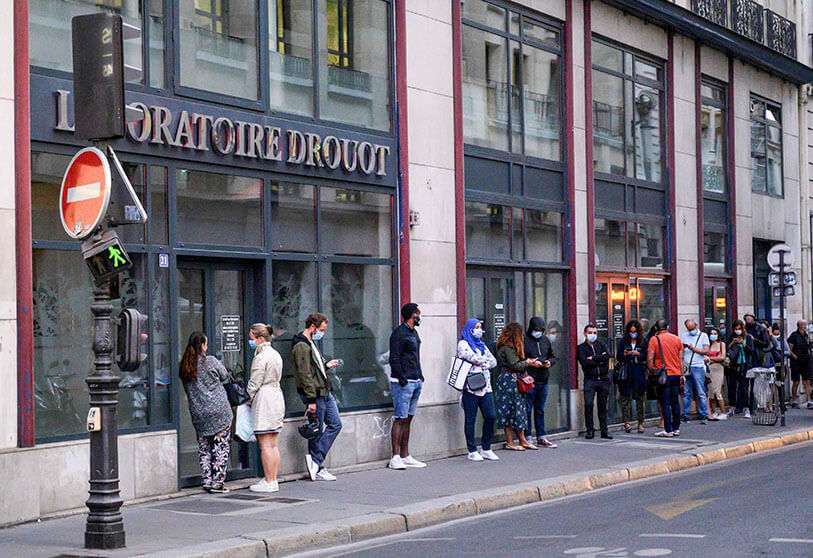
In the last 24 hours, 18,129 positives and 77 deaths have been recorded, bringing the total since the beginning to 671,638 cases and 32,521 deaths. The national incidence rate has now reached 116.28 cases per 100,000 inhabitants in the last seven days, while the level of positivity of the tests carried out has reached 9.8%, compared to nearly 1% at the end of the confinement on 11 May.
Prime Minister Alexander de Croo warned that the situation is "serious" and "worrying". In the Brussels region, bars, cafés and nightclubs have been closed for a month, while in the rest of the country they will close at 11pm. Each person will be able to have close contact with a maximum of three outside the home and private meetings will be limited to a maximum of four. The Belgian authorities announced on Friday that new cases of coronavirus continue to increase, at an average weekly rate of 72 per cent. In the last 24 hours, Belgium recorded 5,728 new Sars-CoV-2 infections, bringing the weekly average to 2,915.9 cases.
With 42,535 confirmed deaths, the United Kingdom is the European country with the most deaths from COVID-19. London maintains the rule of six: NO more than six people in social gatherings. The use of the mask is compulsory in public transport, commerce and hotels and Boris Johnson has recommended his citizens to continue teleworking as far as possible. The UK reported a further spike in daily COVID-19 cases in the country on Thursday, with a further 17,540 positive cases detected, 3,378 more than reported yesterday.
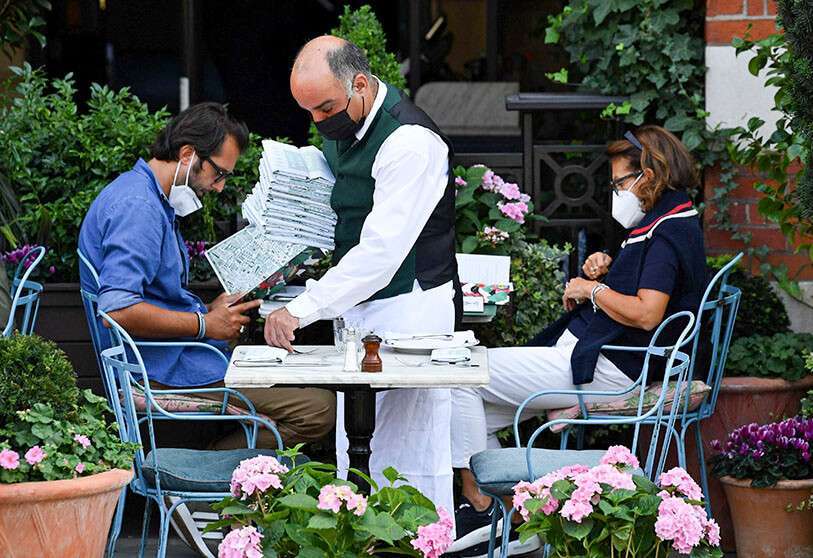
According to updated data from the UK Department of Health, 77 deaths were also reported in the last 24 hours, bringing the total number of deaths from the disease since the start of the pandemic to 42,515.
The Italian government, which maintains the state of alarm, approved a decree to make the use of the mask compulsory, in addition to closing all discotheques. At school, masks are compulsory for all children over the age of six. The upsurge in positive cases, which recorded 4,458 infections in the last 24 hours (compared to almost 3,700 on Wednesday) and the highest number since 11 April, is not what concerns the Health Ministry.
The Ministry is mainly monitoring the state of hospitals with 3,925 admissions for coronavirus so far, but the number of patients in intensive care units has grown to 358.
The mayor-general of Berlin, Michael Müller, warned on Friday that the sharp increase in COVID-19 infections in recent days is affecting the capital, but also the major German cities. According to information from the Robert Koch Institute, the latest figures on the pandemic have reached a peak since mid-April, with 4,516 infections recorded in 24 hours. With these numbers, Müller decided to take measures to close down bars and restaurants at 11 p.m.
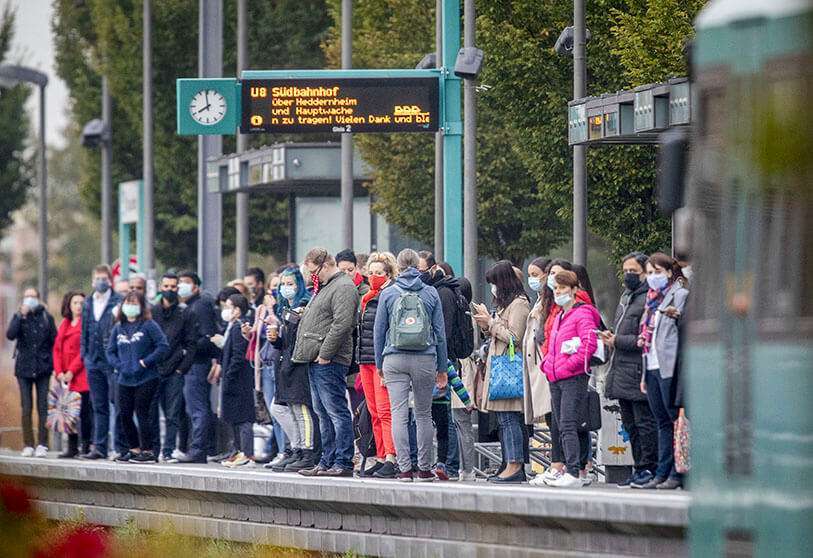
The confrontation between the authorities of the Community of Madrid and the central government to see what measures are taken in the capital and the surrounding municipalities has thrown the region into chaos.
This Friday an extraordinary Council of Ministers declared a state of emergency in Madrid. With 835,901 positive cases, Spain is the country in Europe with the highest number of people infected with the coronavirus since the start of the pandemic and second only to the Czech Republic in the rate of infection per 100,000 inhabitants with 303.3 cases accumulated over the last fourteen days.
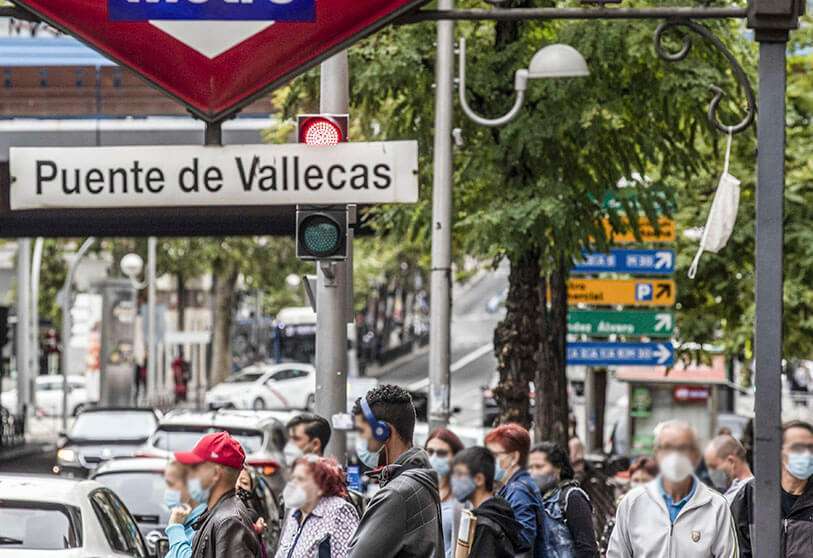
Meanwhile, in the first epicentre of the virus and from where COVID-19 began to spread, they are avoiding, at least so far, the second wave.
The Asian country reported only seven new cases of infection, while on the same day, Wednesday, the United States confirmed 52,500 new cases.
These data and the work of the Chinese authorities have been recognised by the World Health Organisation. According to several experts, it was the introduction of strict restrictions that helped China prevent the spread of the virus and successfully overcome the pandemic. The use of contact-tracking technologies that analysed personal data obtained by CCTV cameras or geolocation systems, were used by the Chinese authorities for effective and efficient monitoring which, for the time being, is achieving minimal spread of the virus.
However, although the situation in the country remains stable, the experts do not rule out the possibility of a second wave. "In China, people have been asking whether there will be a second wave of the pandemic in winter. Now that Europe is experiencing a second wave, it is inevitable that we will see a second wave of infections," said Zhang Wenhog, head of the department of infectious diseases at Shanghai's Huashan Hospital.








